The Complete Beginner’s Guide to Home Kitchen Automation
What is Home Kitchen Automation?
Home kitchen automation is all about making life in the kitchen easier, smarter, and way more convenient. It’s not just about fancy gadgets—it’s about appliances and devices that connect to the internet, talk to each other, and help you cook, clean, and manage your kitchen more efficiently.
Think of it like this:
- Smart fridges track your groceries and suggest recipes.
- Voice assistants set timers and read recipes while you cook.
- Smart ovens let you preheat from your phone.
- AI-powered coffee makers brew your favorite cup before you even get out of bed.
These devices are designed to save time, reduce effort, and make cooking way more fun. Whether you’re a meal prep pro or someone who just wants their morning coffee ready without pressing a button, home kitchen automation has something for everyone.
Getting Started with Smart Kitchen Technology
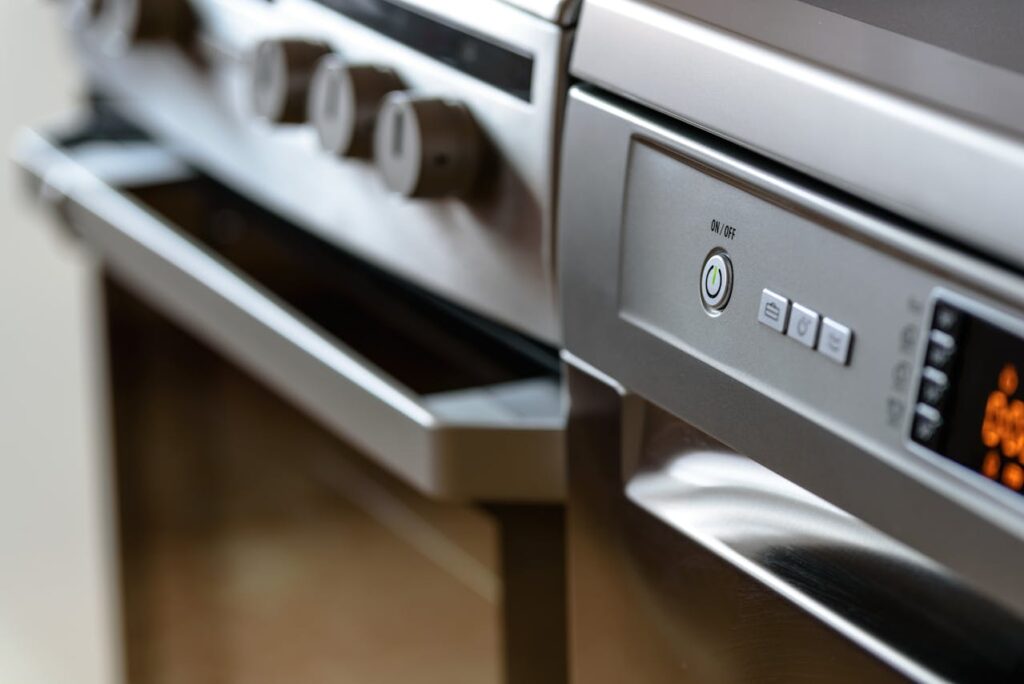
If you’re new to home kitchen automation, the key is to start small. You don’t need to replace everything at once or spend a fortune. The goal is to find the smart devices that fit your lifestyle and make your time in the kitchen easier.
1. Assess Your Needs and Budget
Before buying anything, ask yourself:
- What do I struggle with in the kitchen? Do you forget what groceries you have? Need help timing multiple dishes? Want to control appliances remotely?
- How often do I cook? If you cook daily, a smart oven or multi-cooker might be useful. If you only use your kitchen for coffee, start with a smart coffee maker.
- What’s my budget? Some smart appliances cost hundreds or even thousands of dollars, while others—like smart plugs—cost less than $20 and can make a big difference.
Starting with one or two devices is the best way to ease into smart kitchen technology without feeling overwhelmed.
2. Start with the Basics
Some smart kitchen devices are easier to use and install than others. Here are great starting points:
- Smart refrigerators – Keep track of food inventory, suggest recipes, and even let you see inside from your phone.
- Smart ovens – Preheat remotely, monitor cooking times, and get notifications when your food is ready.
- Voice-activated assistants – Use Alexa, Google Assistant, or Siri to set timers, find recipes, and control smart appliances hands-free.
- Smart coffee makers – Schedule your morning brew, adjust strength settings, and start brewing from an app.
3. Choose a Smart Home Hub
If you plan to add multiple smart devices, a home hub can keep everything connected. Some popular options include:
- Amazon Alexa – Works with many smart kitchen gadgets, great for voice control.
- Google Nest Hub – Ideal if you use Google services and want a visual display for recipes and reminders.
- Apple HomeKit – Best for Apple users who want seamless integration with their iPhones and iPads.
A hub isn’t required, but it makes home kitchen automation smoother, especially when controlling multiple devices at once.
Benefits of Smart Kitchen Technology
Home kitchen automation isn’t just about having cool gadgets. It’s about making cooking easier, saving time, and even cutting down on energy costs. Here’s why more people are upgrading their kitchens with smart technology.
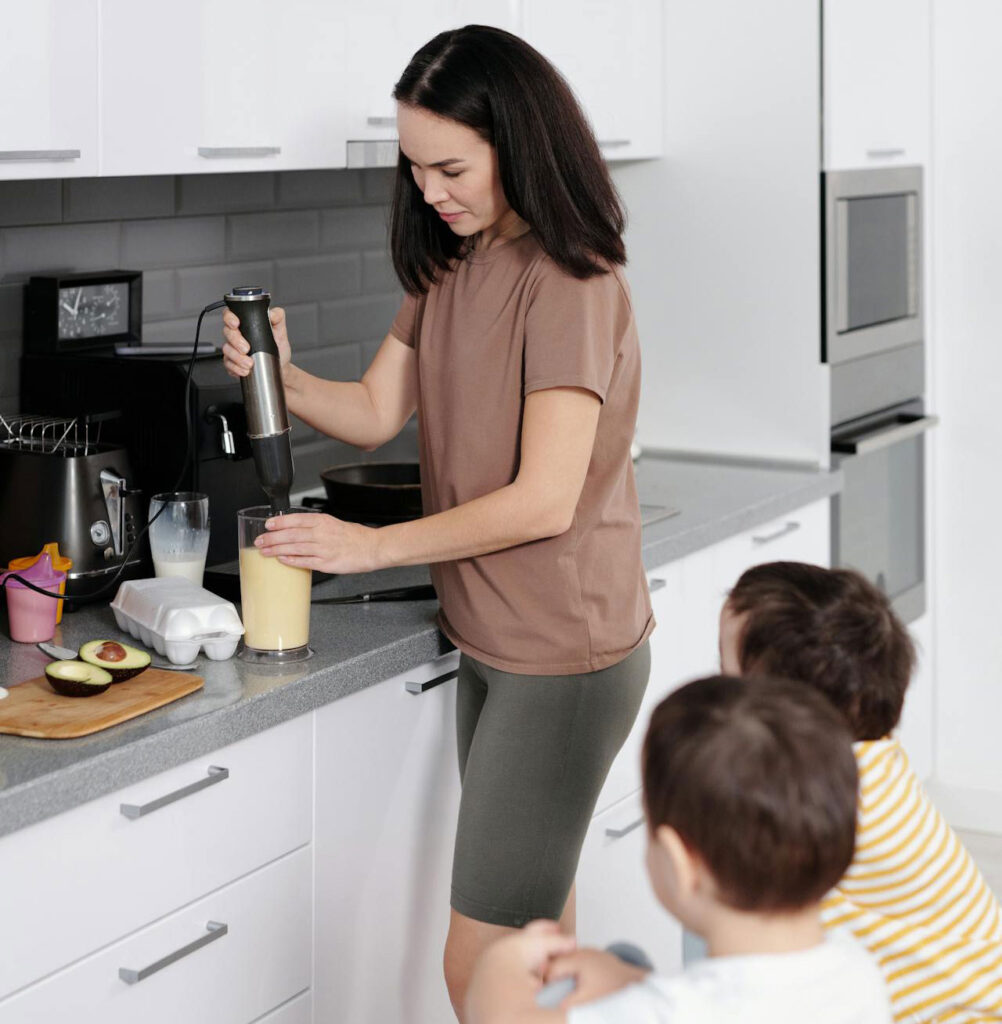
1. Saves Time
- Preheat your oven on the way home so it’s ready when you walk in.
- Get automatic grocery reminders when food is running low.
- Use voice assistants to set multiple timers without lifting a finger.
2. Reduces Energy Use
- Smart dishwashers and refrigerators adjust energy consumption based on usage patterns.
- Smart plugs let you turn off appliances remotely, so nothing stays on by accident.
- Smart lighting can automatically adjust brightness based on the time of day.
3. Improves Cooking Precision
- Smart ovens adjust temperature and cook times for the perfect bake.
- Digital measuring cups ensure exact ingredient amounts.
- AI-powered cooking assistants help prevent overcooking or burning food.
4. Allows Remote Control
- Use an app to start your coffee maker while you’re still in bed.
- Check your fridge’s contents while at the grocery store.
- Get notifications when your meal is done cooking.
5. Customizes Cooking to Your Needs
- Smart kitchen devices learn your preferences over time.
- AI recipe suggestions help you use what’s already in your fridge.
- Precision cookers let you set food to your exact doneness level.
These benefits make home kitchen automation more than just a trend—it’s a way to make everyday cooking faster, simpler, and a little more fun.
Choosing the Right Smart Kitchen Devices
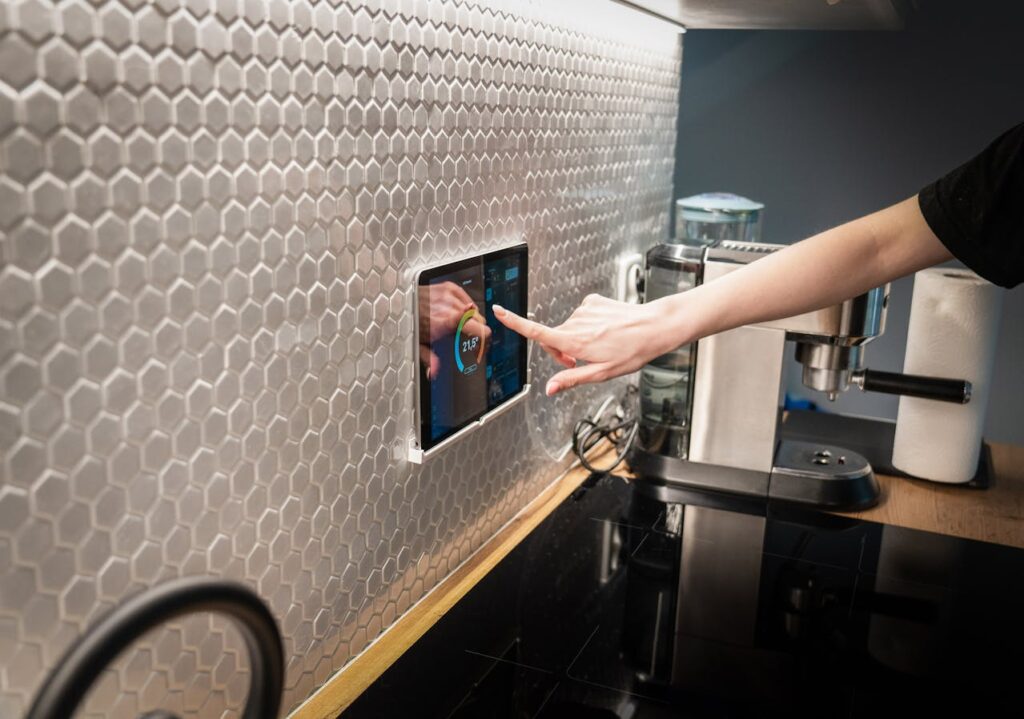
With so many smart kitchen gadgets out there, it’s easy to get overwhelmed. The key is to pick devices that fit your cooking habits, budget, and smart home setup.
1. Match Your Cooking Style
- For beginners: Start with a smart slow cooker or a basic smart oven that allows remote temperature control and cooking timers.
- For busy professionals: A smart coffee maker, voice-controlled microwave, or automatic meal prep assistant can save time.
- For foodies and home chefs: Invest in high-tech ranges, AI-powered recipe assistants, and smart sous vide machines for precise cooking.
2. Set a Budget
Smart kitchen technology ranges from budget-friendly to premium. Here’s a general idea of what to expect:
- Under $50: Smart plugs, motion-sensing lights, digital measuring scales.
- $50 – $200: Smart coffee makers, WiFi-enabled slow cookers, voice-controlled microwaves.
- $200 – $1,000+: Smart refrigerators, high-end ovens, AI-powered cooking assistants.
You don’t have to upgrade everything at once. Start small and expand as you get more comfortable with home kitchen automation.
3. Ensure Device Compatibility
Not all smart appliances work with every smart home system. Before buying, check if it’s compatible with:

- Amazon Alexa – Works with many smart appliances and voice control.
- Google Home/Nest – Great for visual recipe displays and multi-device integration.
- Apple HomeKit – Best for Apple users who want seamless connections between their devices.
Most smart kitchen gadgets list compatibility on their packaging or product description, so double-check before you buy.
Popular Smart Kitchen Appliances
If you’re looking to upgrade your kitchen with automation, here are some of the best smart appliances that can make cooking and meal prep easier.
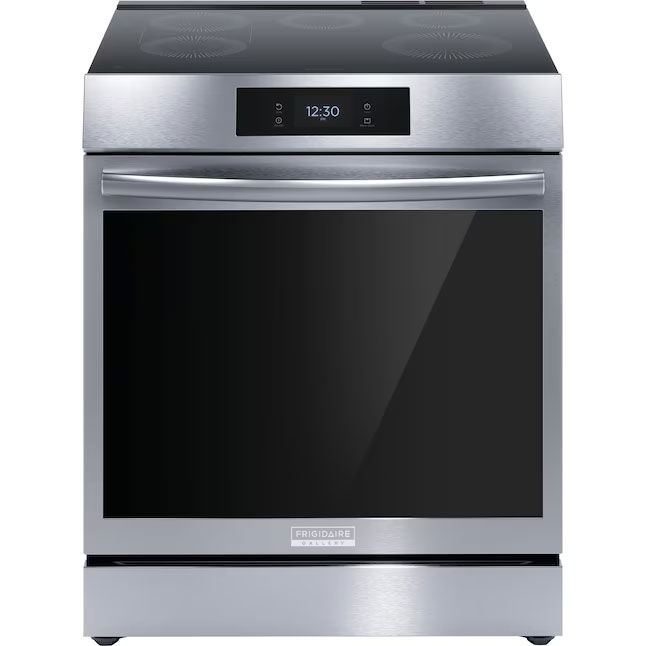
1. Smart Refrigerators
- Keep track of groceries and expiration dates.
- Suggest recipes based on what’s inside.
- Let you peek inside remotely from your phone while grocery shopping.
- Some models even place grocery orders for you.
2. Smart Ovens and Ranges
- Preheat and adjust temperature remotely.
- Use AI cooking assistants to prevent overcooking.
- Some models scan barcodes on food packaging and set the perfect cook time automatically.
- Smart air fryers and multi-cookers allow precise temperature control.
3. Smart Dishwashers
- Start cycles remotely or schedule them for off-peak energy hours.
- Adjust water usage based on how full the dishwasher is.
- Some models send notifications when detergent is running low.
4. Voice-Activated Assistants
- Hands-free control of kitchen appliances.
- Set timers, play music, and read recipes out loud while you cook.
- Connect with other smart devices like lights, thermostats, and security systems.
5. Smart Coffee Makers
- Schedule coffee brewing for the perfect morning routine.
- Customize brew strength and temperature from your phone.
- Some models use AI to learn your coffee preferences.
Adding just one or two of these appliances can make a big difference in how convenient and efficient your kitchen is.
Tips for Implementing Smart Kitchen Technology
Bringing home kitchen automation into your daily routine doesn’t have to be complicated. Here are some tips to make the transition smooth and stress-free.
1. Start Small
- Don’t try to automate everything at once—begin with one or two devices.
- A smart coffee maker or a voice-controlled assistant is an easy way to start.
- Once you’re comfortable, expand to smart ovens, fridges, or lighting.
2. Prioritize Compatibility
- Check that all smart devices you buy work together.
- Choose a smart home hub (Alexa, Google Assistant, or Apple HomeKit) and stick with devices that support it.
- If you mix different brands, use IFTTT (If This Then That) to connect them.
3. Consider Long-Term Value
- Some smart appliances cost more upfront but save energy and money over time.
- Smart thermostats and energy-efficient appliances reduce electricity bills in the long run.
- High-quality smart devices last longer and offer more features than budget models.
4. Keep Up with Software Updates
- Smart appliances need firmware updates to improve performance and security.
- Enable automatic updates or set reminders to check for them manually.
- Regular updates prevent bugs and add new features over time.
5. Stay Informed on New Tech
- Smart kitchen technology is evolving fast—keep an eye out for new features.
- Follow smart home blogs, YouTube channels, or appliance manufacturer updates.
- Join online forums or Facebook groups to learn from other smart kitchen users.
The Future of Smart Kitchen Technology
Home kitchen automation is evolving fast, and the next wave of smart tech will make cooking even easier, more efficient, and more personalized. Here’s a look at what’s coming.
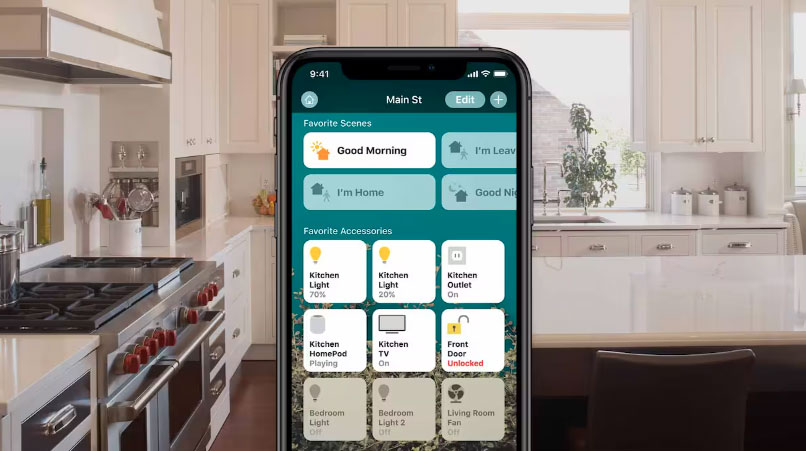
1. AI-Powered Cooking Assistants
- Smart ovens and cooktops are already using AI to detect food and adjust temperatures automatically.
- Future appliances may suggest recipes based on what’s in your fridge and even customize cooking times to your preferences.
- AI-powered meal planners will help reduce food waste by tracking expiration dates and recommending meals that use what you already have.
2. Smarter Energy Management
- Future smart appliances will learn your habits to use energy more efficiently.
- Smart fridges will optimize cooling based on how often you open the door.
- Some dishwashers and ovens will schedule themselves to run during off-peak energy hours, lowering your power bill.
3. Voice and Gesture Control
- Hands-free cooking will get even better with improved voice commands and gesture recognition.
- Smart kitchens may soon let you turn on the stove with a simple wave of your hand.
- Some voice assistants will speak in a more conversational way, making kitchen automation feel even more natural.
4. Advanced Food Storage and Inventory Tracking
- Future fridges will automatically scan barcodes when you add groceries, keeping track of what you have.
- Some models will suggest recipes based on expiration dates, helping you cut down on food waste.
- Smart containers will alert you when leftovers are about to go bad.
5. More Sustainable Smart Kitchens
- More eco-friendly smart appliances will hit the market, focusing on lower water and energy usage.
- Some smart dishwashers will recycle water, cutting down on waste.
- AI-powered food waste systems will help compost leftovers or even turn them into usable ingredients.
Home kitchen automation is just getting started. As new innovations roll out, kitchens will become even more intuitive, efficient, and personalized. Whether you’re just starting with a smart coffee maker or planning a fully automated kitchen, there’s never been a better time to explore what smart technology can do for your home.
FAQ: Smart Kitchen Technology & Home Kitchen Automation
1. What is home kitchen automation?
Home kitchen automation refers to the use of smart devices and appliances that connect to the internet or a smart home hub to improve efficiency, convenience, and control in the kitchen. This includes smart refrigerators, ovens, coffee makers, dishwashers, and voice assistants that help streamline cooking, cleaning, and food management.
2. Do I need a smart home hub to use smart kitchen appliances?
Not necessarily. Many smart kitchen devices work independently using their own apps. However, if you plan to connect multiple devices and control them from one place, a hub like Amazon Alexa, Google Nest, or Apple HomeKit can make things easier.
3. Are smart kitchen appliances energy-efficient?
Yes, many smart appliances are designed to optimize energy use. Smart refrigerators adjust cooling based on usage, dishwashers can run on off-peak hours, and smart ovens preheat efficiently. Using smart plugs and automation features can also help reduce electricity waste.
4. What are the best smart kitchen devices for beginners?
If you’re just starting with home kitchen automation, some easy-to-use options include:
- Smart coffee makers – Schedule and customize your brews.
- Voice assistants (Alexa, Google Assistant) – Hands-free timers, recipe reading, and appliance control.
- Smart plugs – Turn regular kitchen appliances on and off remotely.
- Smart ovens or air fryers – Control temperature and cooking time from your phone.
5. Is home kitchen automation secure?
Most smart kitchen devices are safe as long as you take basic precautions. Use strong passwords, enable two-factor authentication, and keep your devices updated to protect against security vulnerabilities. Keeping everything on a secured WiFi network can also reduce risks.

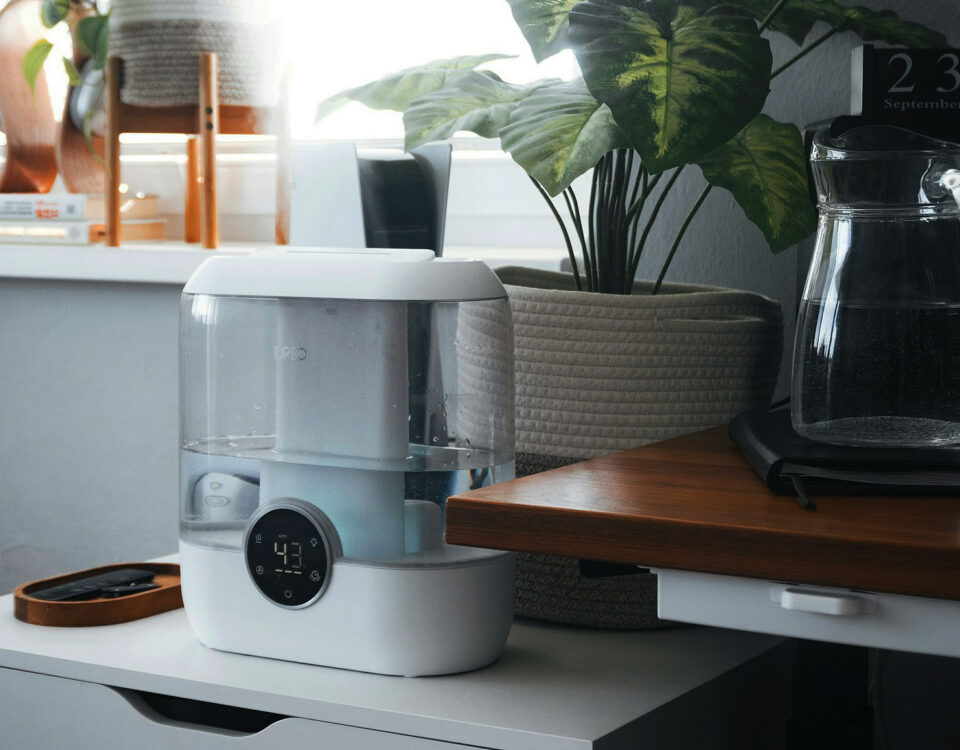

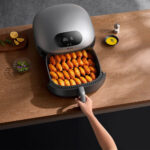
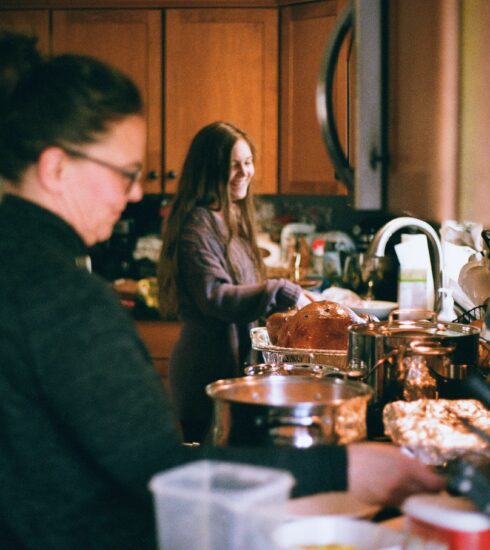
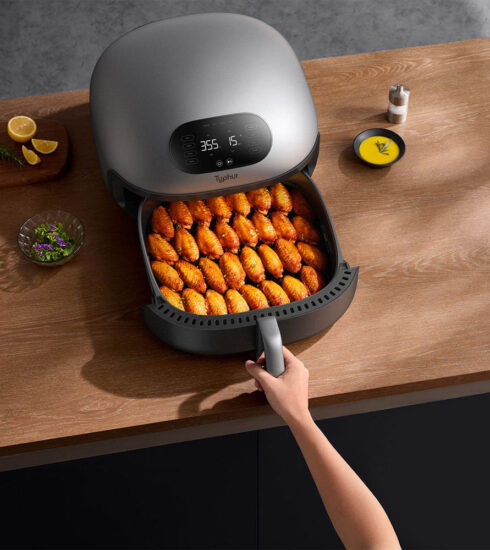
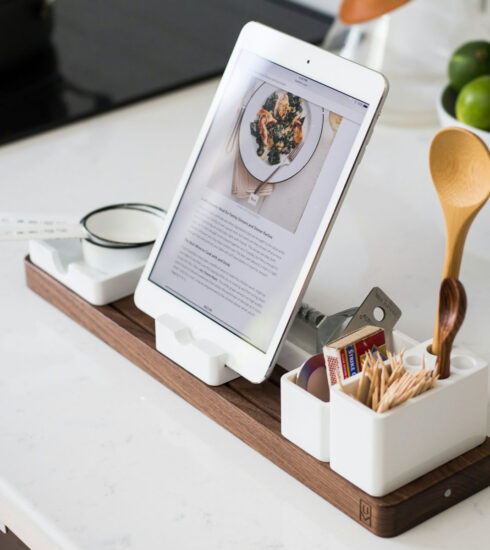
4 Comments
The Smart Kitchen Buyer’s Guide: Home Automation Kitchen Tips
1 week ago[…] you start shopping for smart appliances, take a step back. It’s easy to get caught up in the latest gadgets, but the goal is to invest in […]
Cutting Utility Costs with an Energy-Efficient Smart Kitchen
1 week ago[…] Smart tech isn’t just about convenience—it can make a real difference in cutting utility costs. From fridges that optimize cooling to lights that turn off when no one’s around, smart devices help reduce waste and make your kitchen work more efficiently. […]
Smart Kitchen Essentials: Best Devices for Every Budget
1 week ago[…] has changed the way we cook, making it easier, faster, and sometimes even more fun. Smart kitchen gadgets aren’t just about looking high-tech; they help streamline meal prep, save time, and reduce […]
Empty Nest Home Renovation: Create Your Dream Home - Empty Nester Diaries
4 days ago[…] for two more enjoyable, or a kitchen that’s perfect for hosting dinner parties. Either way, upgrading your kitchen can breathe new life into your […]